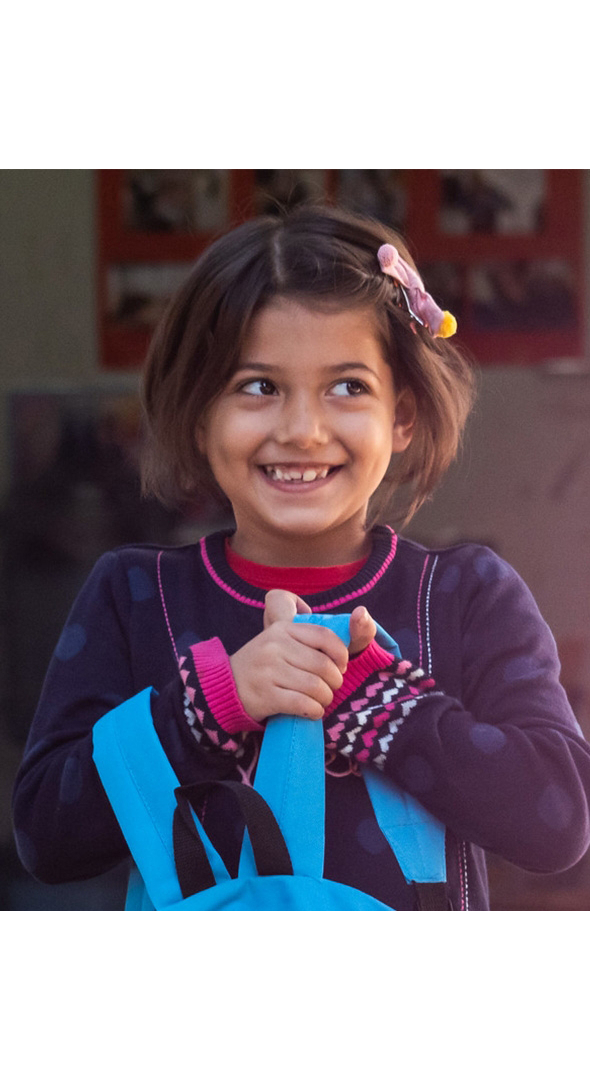Findings announcement on ‘Children’s participation: A Hong Kong study’ ‘Voices of Youth’ online children’s radio programme will premiere tonight
2010-09-04
HONG KONG (4 September 2010) - The Hong Kong Committee for UNICEF (HKCU) announced the research findings of ‘Children’s participation: A Hong Kong study’, the first study conducted in Hong Kong on this issue. The results show that among the 3 domains,family, school and social policy making, policy making is apparently the one where children participate least, and over 60% of the child respondents are not satisfied with the existing channels for them to express their opinions on social policies. HKCU will also announce the Hong Kong premiere of ‘Voices of Youth’ (VOY), a UNICEF international initiative dedicated to promoting children’s right to participation. We are glad to have the VOY hosts on hand to read out the top 8 ‘what I would say to the Chief Executive’ responses as the first step of spreading the words of children and a prelude to the premiere tonight at 9.
UNICEF has been dedicated to protecting and realising children’s right to participation, and to promoting children’s voices in all levels of society. To our knowledge, no previous documentation in Hong Kong has been able to give us a picture on children’s participation in society, thus, the Hong Kong Committee for UNICEF (HKCU) conducted a survey entitled ‘Children’s participation: A Hong Kong study’in August 2010 to obtain useful information on local children’s perception about their own rights to participate in different facets of their lives. According to the results, the majority of the respondents recognise their right to participation in all of the domains, especially issues that affect them most. Over 80% of them agree or strongly agree that they should enjoy autonomy, proving quite a strong sense of self awareness among children in Hong Kong. However, concerning the making of social policies, the number of respondents who think they have the right to raise their opinions drops drastically by almost 30%, indicating a lack of encouragement for children’s participation in our society. As for participation at school, close to half of the respondents think their schools are willing to open up channels for communication, but over 75% of them said their opinions were not accepted. Generally speaking, children think their schools only listen but never response, and fail to truly realise children’s right to participation and listen to their voices. Regarding the channels for children to express their opinions on social policies, more than 60% of the respondents either think there is not enough of them or have no comment. Similarly, over 60% of the respondents not sure how they could express their opinions, indicating that our society is yet to develop enough mechanisms and create enough space for children to express their opinions on and participate in social policies. Thus, HKCU feel that Hong Kong cannot yet be claimed as a society that encourages children’s participation. Besides the above 3 areas, the research has also included the cyberspace which is most relevant to children’s daily lives. Results show that close to 70% of the respondents agree or strongly agree that they can express their opinions most freely in the cyberspace, which is also where their opinions are most heard. Nearly 85% of the respondents exchange and express thoughts on the Internet through social networking media, including facebook (55.63%), MSN (22.54%) and forums (9.39%). Ms Irene Chan, Chief Executive of the Hong Kong Committee for UNICEF said, “UNICEF has been dedicated to making a better world for children worldwide and ensuring the development that all children deserve. We hope that through the online radio station ‘Voices of Youth’, we will not only be able to provide a platform for children to speak out, but, at the same time, pass positive messages and give suggestions and support to the younger generation of Hong Kong.” 2 UNICEF VOY hosts Joanne and Heidi will present the top 8 ‘what I would say to the Chief Executive’ responses. The hosts collected a total of 271 responses from children about what they would say to the Chief Executive, among which are mostly comments on social polices, performance of the Chief Executive and some encouraging words. Interestingly, 10% of the respondents just want to give their greetings to our Chief Executive. VOY hosts will hand the top 8 ‘what I would say to the Chief Executive’ responses to Ms Irene Chan, symbolising that UNICEF will lead the VOY hosts to listen, to speak out and to take action for children of Hong Kong. Together, we will listen to and respect the voices of children, and infuse them into every level of society. To further advance children’s rights to participation, the Hong Kong Committee for UNICEF will focus its work on the following areas: 1) Create the first post 90s platform in the mass media 2) Nurture Young Envoys and organise youth-led programmes 3) Call for a commission for children’s affairs 4) Import ‘Voices of Youth’, a children’s online radio station‘Voices of Youth’ online children’s radio programme will premiere tonight 9:00-9:30
Listen in on www.unicef.org.hk or www.uchannel.hk/unicefvoy.htm
Photos of the event are available for download at /0409voypc.zip
What Hong Kong children would say to the Chief Executive:
| Social policies and problems in society(35.8%) | 「起錨啦,小心呀!」 「政改有冇第二個方案?」 「334變制唔適宜一次過改!」 「新高中唔清晰,前途未清?!」 「不要忽略年青人的意見!」 「多聆聽市民的需要,加油!」 「要港人信任你,你才是我們的特首。」 「廣納民意,敢作敢為。」 |
| Performance of the Chief Executive (21%) | 「可以做得更好!」 「幾滿意。」 「覺得你唔係做得禁好。」 「做好你份工!」 |
| Encouraging words for Hong Kong or the Chief Executive (15.9%) | 「繼續努力,做好份工,不要令我們失望!」「煲呔加油呀!永遠愛你支持你!」 「辛苦你啦!」 「俾心機!」 「做好香港!」 |
| Greetings to the Chief Executive (9.6%) | 「Hello」 「你好,多啲落區」 「做個好朋友」 「我係你嘅市民」 |
| Appearance or image of the Chief Executive (6.3%) | 「你條bow tie好靚」 「Cute Bowties」 「你D bow tie好多種」 「你好親切」 「fix一fix個hairstyle」 |
| Others ( 8.5%) | 「唔好咁死板」 「香港嘅音樂種類太少,希望大啲音樂領域,如:古典音樂」 「香港人可唔可以冇咁大壓力?」 |









